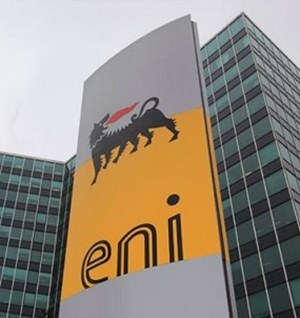Eni named as operator of world's first low-carbon industrial cluster
(WO) – Eni, operator of CO2 transfer and storage for HyNet North West, announced the achievement of a great result which strengthens the company’s position to become the first operator for Carbon Capture and Storage (CCS) projects in the UK.
The UK Department for Energy Security and Net Zero (DESNZ) has announced the first carbon capture projects that will access the £20 billion in funding provided by the government for Track 1 initiatives, to accelerate the UK’s industrial decarbonization.
Five projects submitted as part of the HyNet North West cluster (out of 7) have been confirmed in the eight projects earmarked for funding, for which Eni will be responsible for the transportation and storage of carbon dioxide emissions. The other 3 selected projects (out of 14 submitted) belong to the East Coast Cluster on the East Coast of the UK.
With this decision, the United Kingdom confirms its position as one of the leading countries for the development of Carbon Capture and Storage CCS. CCS is a technological process that avoids the release of carbon dioxide emissions from industrial activities into the atmosphere. CCS plays a fundamental role in the decarbonization of "hard to abate" sectors, for which there are currently no equally effective solutions.
The implementation of the projects selected from the HyNet consortium will contribute to the decarbonization of large emitting companies in the industrial hub of North West England and North Wales, including the cement sector, "Waste to Energy" and in the production of hydrogen with a low carbon footprint.
The volume of CO2 that will be captured under the selected projects, equal to approximately 3 million tonnes per year, will then be gathered, transported and permanently stored by Eni in its own depleted gas fields off the coast of Liverpool Bay, which have a total storage capacity of about 200 million tonnes.
Thanks to the development of the HyNet CCS project, Eni will play a leading role in the decarbonization process of the United Kingdom which has identified the Capture, Transport and Storage of CO2 as one of the fundamental tools for achieving the objectives in the fight against climate change.
The HyNet project will transform one of the UK's most energy-intensive industrial districts into the world's first low-carbon industrial cluster. The project is expected to start in the mid current decade with an injection rate of approximately 4.5 million per year in the first phase, and the capacity to reach approximately 10 million tonnes of CO2 per year from 2030.
The volume of CO2 emissions avoided represents a significant share compared to the 20-30 million industrial emissions reduction target associated with CCS by the UK Government, and will also contribute 40% to the national target of producing 10GW of low carbon hydrogen.
In addition to the benefits from an environmental standpoint, HyNet will promote a new impetus to the development of the region thanks to investments in projects and the creation of new jobs linked to the promotion of new production chains.
From an employment perspective, the project will preserve current levels and at the same time will favor the creation of around 56,000 new jobs in the period 2022-2030 in the Liverpool Bay area.
In addition to its work in Liverpool Bay, Eni recently submitted an application to the North Sea Transition Authority (NSTA) for a carbon dioxide storage license in the Hewett depleted gas field, which covers an area located in the southern British North Sea. Eni plans to develop a CCS project that will contribute to the decarbonization of the Bacton and Thames Estuary areas. The depleted and inactive Hewett gas field is an ideal site to permanently store CO2 with a storage capacity of about 300 million tons of carbon dioxide over its lifespan.



